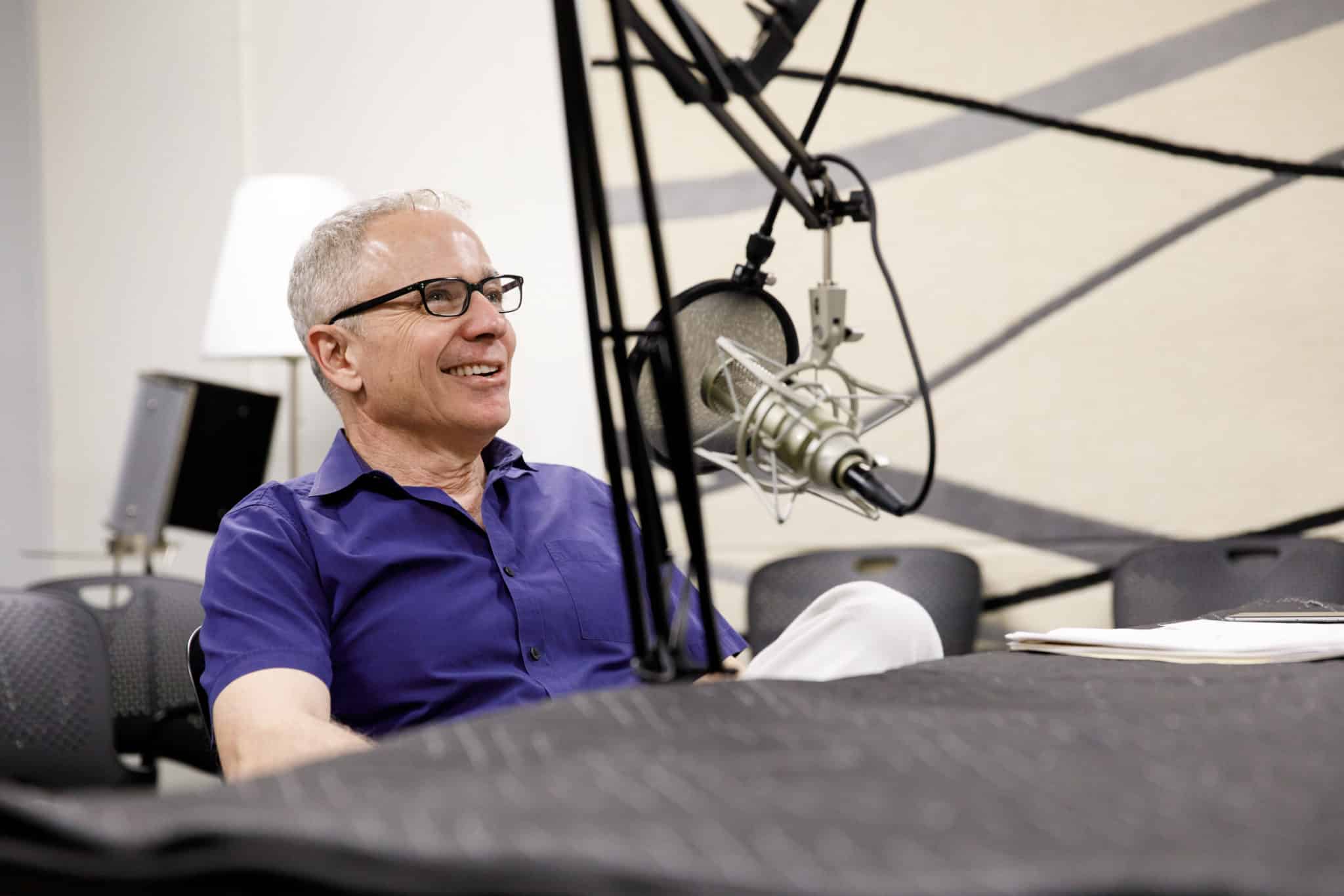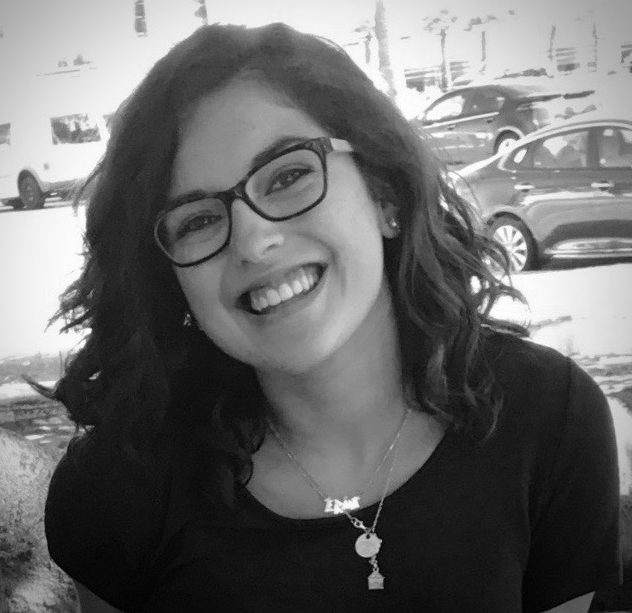 Recording of ArtCenter’s podcast hosted by Lorne M. Buchman. Photo by ArtCenter College of Design/Juan Posada
Recording of ArtCenter’s podcast hosted by Lorne M. Buchman. Photo by ArtCenter College of Design/Juan Posada While many university presidents and administrators run colleges from a strictly business or educational mindset, Lorne Buchman runs college like a director would run a theater production. Since 2009, Buchman has been president of ArtCenter College of Design in Pasadena and uses his theater background to inspire and engage with the students, faculty and staff. He also hosts the podcast “Change Lab: Conversations on Transformation and Creativity,” where he speaks with leading artists and examines what fuels their work. Season 7 of the podcast will return Sept. 23 and is dedicated to amplifying voices of Black artists and designers.
Buchman told the Journal he not only looks at running a college through a creative lens but at all elements of his life that way. A member at IKAR, he says the environment sparks creativity in him because “the work they do to inspire the community is equivalent of great design.” Even the Toronto native’s love for hockey is theatrical —a Shakespearian tragedy if you will — as he holds out hope for the Maple Leafs to win the Stanley Cup (the team’s last Cup victory was in 1967).
The conversation below with Buchman took place before the pandemic and mandatory lockdown.
Jewish Journal: It looks like you’ve found a home at ArtCenter. What’s been the best part of overseeing this campus?
Lorne Buchman: For sure, the people. Of that community, it’s the students. They are amazing. They are gifted and talented and brilliant and they come with an openness and willingness to absorb creative education and it is amazing to see them grow. It’s a gift to be here.
JJ: How often are you in your office versus walking around campus?
LB: I make it a point to walk around and engage. With regularity, I do something called “Lunch With Lorne” and it’s just an invitation for everyone to get in this room and have a meal together and just talk about whatever we want to talk about. We do it three times a year and it’s my favorite time.
JJ: How has your theater experience helped you be a strong president?
LB: I will argue that being a theater director is the greatest training for being a college president. That’s because the processes are pretty much the same. When you’re a director, you have an idea, a notion, you are working with a text, and you engage with a community of actors, designers and the like and through that process, it begins to take shape and you build your ideas. It becomes a community conversation.
The work of the director then is to slowly give the work over to the performer to enable the most important part, which is between a spectator and a performer. When spectators are watching a play, nobody’s really thinking about the director in that moment. So, at that point, the director has created a space to allow something to happen and move it forward. Being a college president is the same thing. I come in and I work with a community of people: staff, faculty, students. My work is really about handing it over to them to enable the most important moment and that’s between a teacher and a student.
JJ: Your podcast, “Change Lab,” is now in its sixth season. Why did you decide to host one?
LB: There are so many interesting people that I come across in my work here and so many interesting questions that we’re wrestling with, it only seemed fair to share it. It’s certainly my responsibility as college president to be able to communicate or reach out to the public with what happens here. What are the things that we care about here? What are the issues we care about? What are students saying? What are faculty saying? What are artists in the community saying about certain topics and experiences and how can it help artists?
JJ: What do the students think?
LB: Different students will attach to different things. If you talk to photographer Matthew Rolston, the photography students will go there. If you talk to Yves Béhar, industrial design students will listen to that. I have heard that there are a number of students who listen all the time. The truth is, a lot of students at ArtCenter barely have time to brush their teeth so I don’t know how many podcasts they’re listening to. But the student engagement has been really good.
JJ: What podcasts did you listen to in order to figure out how to form your own podcast?
LB: I learned a lot from (journalist and author) Krista Tippett in her “On Being” podcast. I try to trace childhood with who [the guests] are as artists today and she does that often by mentioning “spiritual upbringing.” If there is any model it would be her.
JJ: Who haven’t you interviewed yet that you would love to?
LB: [Los Angeles] Mayor [Eric] Garcetti. Our students were part of the Sanctum Project, which is his effort to address homelessness in a meaningful way. Our students did some projects there and it was showcased at our space in downtown Los Angeles. What I would like to do is have a conversation, kind of roundtable style, with students who did the work with a faculty member and the mayor to talk about the project. But there are so many.
JJ: How does art and Judaism tie into your life?
LB: Judaism to me is fundamentally about generating questions, rich and important questions. Art and design are about generating important life questions, too. That’s the root of it. It’s not so much answering them as it is to address them and engage with them, often leading to other questions like in great talmudic fashion. Listening to dialogue, debating, all those things that are so integral to Jewish thought are also fundamental to art and design.























 More news and opinions than at a Shabbat dinner, right in your inbox.
More news and opinions than at a Shabbat dinner, right in your inbox.